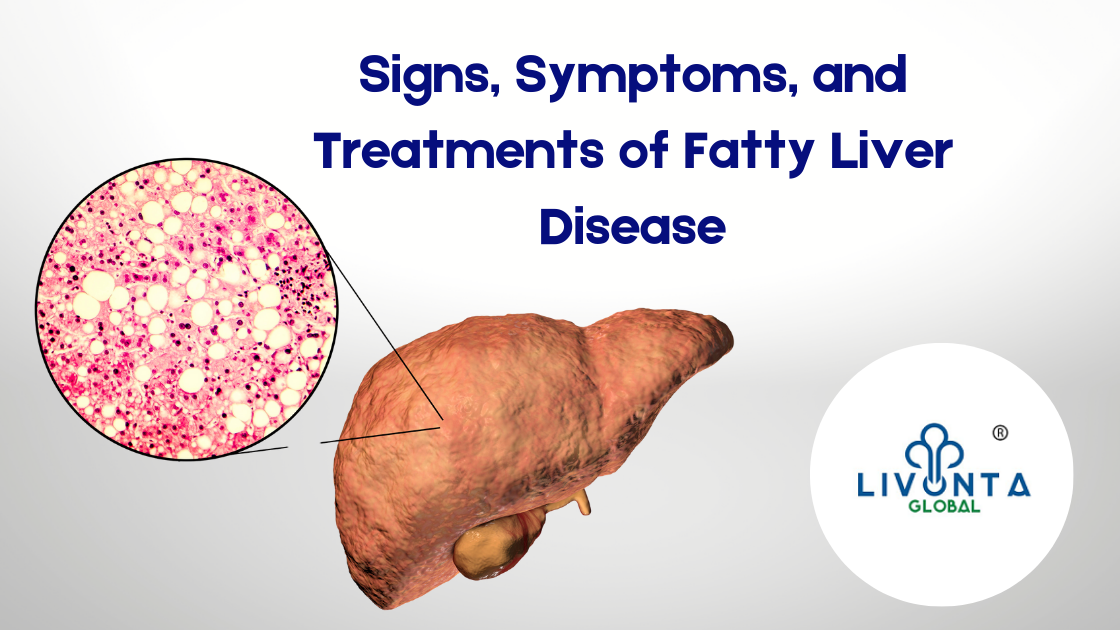
Signs, Symptoms, and Treatments of Fatty Liver Disease
The liver is a central organ of a body that performs more than 14,000 functions. The liver absorbs nutrients, clears metabolic by-products, and extirpates potential toxins and drugs from your body. Liver transplantation is a procedure that requires when your liver stops functioning completely. Liver failure occurs when fat starts getting accumulated within your liver cells (fatty liver disease). This fatty liver disease can lead to cirrhosis (scarring of the liver) and liver failure.
If you are suffering from fatty liver disease, then you must contact Livonta Global which will connect you with the best liver hospitals in India. Livonta Global is partnered with many reputed liver hospitals in India where you will be treated by the best liver doctors in India.
Signs of Liver Failure
When failure occurs, liver functions are lost gradually. Signs of liver failure include:
- jaundice (a yellow colour to the skin and eyes)
- bruising and bleeding
- confusion
Causes of Liver Failure
- Non-Alcoholic Fatty Liver Disease (NAFLD), often known as steatohepatitis
- Alcohol
- Hepatitis C
- Hepatitis B
- Immune-mediated liver disease like PSC, PBC and Autoimmune Hepatitis
- Storage diseases such as hemochromatosis (Iron excess), Wilson Disease (copper excess) of Alpha-1 Antitrypsin Deficiency
- Other rare diseases
- Some occasional medications
Non-alcoholic fatty liver disease is the most common liver disease in the USA. Almost 100 million people in the USA are suffering from fatty liver disease. Fatty liver disease is one of the common reasons for cirrhosis and now it accounts for almost 25 per cent of all liver transplants.
How Serious is Fatty Liver Disease?
A plethora of studies has revealed that in the next 20 years, nearly 1.5 million people will develop cirrhosis from fatty liver disease. Fatty liver can occur in anyone, but it is common among people with some risk factors. If you have more than one risk factors, you are more susceptible to develop this disease. Risk factors include,
- Obesity (if you are overweight or having a high BMI)
- Diabetes (generally Type 2 diabetes)
- High cholesterol or triglycerides
- Insulin resistance
- Increased liver function tests of an unknown cause, also known as liver enzymes
- Family history of liver disease, liver failure, or liver cancer.
Treatment of Fatty Liver Disease
At present, there are no medications for fatty liver disease. By doing some changes in your diet or losing weight, you can reverse it.
- Weight loss: If you can lose up to 7-10% of your body weight, then this can improve your disease. But losing weight too quickly can make worse the disease. Hence, you need to lose weight gradually with a balanced diet and regular exercise.
- Stop consuming alcohol: If you have alcoholic fatty liver disease, then by stopping alcohol consumption you can prevent it.
- Eat a balanced diet: Try to eat a balanced diet that contains fruits, vegetables, asparagus, probiotics, etc. Stop eating red meat, sugar, and processed food as this may enhance your fatty liver disease condition.
- Regular exercises: Taking regular exercise will prevent fatty liver disease. You should aim for 2.5 hours of physical exercise per week.
Fatty Liver Disease During Pregnancy
Near about 3 per cent of pregnant women may develop the fatty liver disease during their pregnancy period. Symptoms include,
- stomach pain
- appetite loss
- extreme tiredness
- jaundice
- nausea
If a pregnant woman experience any of the above symptoms should consult with the best liver doctors in India without any delay.
If preventions don’t work, then you need to go for liver transplant surgery to overcome the condition.
Livonta Global has an exceptional reputation in the field of medical tourism. If you want to treat your fatty liver disease at an early stage, you should get in touch with Livonta Global which is partnered with many well-known liver hospitals in India.
Liver Transplant TreatmentTags: Causes of Liver Failure, Fatty Liver Disease, Signs of Liver Failure, Symptoms and Treatments of Fatty Liver Disease

